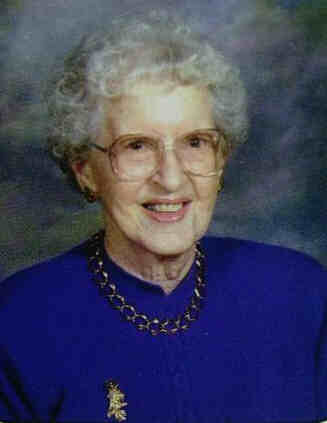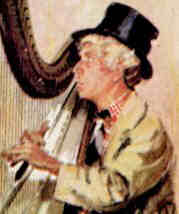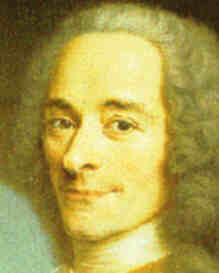| 1831 La révolte des canuts
C'est au cri de " Vivre libre en travaillant ou mourir en combattant "que les insurgés lyonnais les " canuts" [pas les Canus] se révoltent ce jour. Le patronat qui a signé des accords sur un minimum salaires ne sont pas respectés. Les patrons de l'industrie de la soie sont les fautifs de la révolte qui éclate. Les canuts, dont l'immense majorité vient du quartier de la Croix Rousse, s'emparent de Lyon. Les troupes de la garde nationale envoyées contre eux, fraternisent avec les ouvriers. On donne ordre par prudence aux troupes cantonnées à Lyon d'évacuer la ville pour éviter qu'elles ne ralient elle aussi les insurgés. Mais le gouvernement de Casimir-Perier dépêche à Lyon le maréchal Soult et le duc d'Orléans pour réprimer ce que les socialistes nommeront les " Trois glorieuses du prolétariat lyonnais. " On relèvera les corps de 171 ouvriers et aussi ceux de 170 militaires. Il y a 600 arrestations. Les 10 000 ouvriers sont chassés finalement de la ville le 5 décembre. Les salaires minimaux consentis sont déclarés nuls. Casimir-Perier tire les conclusions des événements en ces termes : " Il faut que les ouvriers sachent bien qu'il n'y a de remède à leurs maux que dans la patience et la résignation. " Mais Aristide Bruant donne aux canuts cette chanson d'espoir : " Mais notre règne arrivera / Quand votre règne finira / Alors nous tisserons le linceul du vieux monde / Car on entend déjà la révolte qui gronde. " |
| 1806 "Blocus continental" contre
l'Angleterre, ordonné par un décret signé à
Berlin par Napoléon 1er Faute de pouvoir battre militairement l'Angleterre, l'empereur tente de l'étouffer économiquement en empêchant ses commerçants de vendre à leurs clients habituels. Il interdit à tous les pays européens de commercer avec elle. Et pour s'assurer de la mise en application du blocus, l'empereur n'hésite pas à envahir les pays récalcitrants. C'est ainsi qu'il sera entraîné dans deux expéditions fatales, en Espagne et en Russie. — Blocus contre les Anglais: L'Angleterre est très coriace. L'empereur ne parvient pas en venir à bout de par les armes. Il choisit donc une autre méthode plus suptile. Il s'agit, pour répondre au blocus mis en place par les Anglais depuis mai, d'interdire l'accès des navires anglais au continent. Pour ce, le décret donné ce jour à Berlin par Napoléon ordonne : " Tout commerce et toute correspondance avec les îles britanniques sont interdits. " En outre, toutes les marchandises qui proviennent d'Angleterre peuvent être saisies et les navires qui auraient fait escale dans un port britannique sont menacés de saisie s'ils viennent à relâcher dans un port du continent. |
 1783
First manned hot air balloon flight 1783
First manned hot air balloon flight French inventor Jean-François Pilâtre de Rozier and the Marquis François-Laurent d'Arlandes make the first manned hot air balloon flight when they fly over Paris, France, for twenty-five minutes. Their cloth balloon was crafted by French papermaking brothers Jacques Etienne and Joseph Michel Montgolfier, who believed smoke, not hot air, caused balloons to rise. Fueling the balloon's burner with a combination of damp straw, rotting meat, and rags, Rozier and d'Arlandes ascended as high as 1000 meters, before returning safely to earth. The previous month, Rozier was the first human passenger aboard a rising balloon, when he rose 25 meters in a tethered Montgolfier-made balloon, and four months before that, a duck, a rooster, and a sheep each successfully took a ride on a Montgolfier hot air balloon. — MORE |
| 1620 Mayflower Compact
There are more than l60 independent nations in the world. Whether dictatorships or democracies, nearly all have written constitutions, but that of the United States is by far the oldest. This is something we can so easily take for granted. But it really marked a pivotal turning point in history and the way nations came to govern themselves. How do you suppose the founding fathers ever thought of having a written Constitution? The idea of a written contract between the people and their government came from a tiny band of 50 Christians called Pilgrims that sailed to America in the Mayflower in l620. The Pilgrims believed many of the Church of England's traditions were not Biblical. Since both King James and the state church persecuted all critics as criminals, the Pilgrims became Separatists and fled first to Holland, then to America. They planned to land in Virginia, where they had a charter from the King to govern them, but Atlantic storms carried them far north to Cape Cod. Since their charter was not valid in that region, they needed a new governnment. And so on this day, November 20, l620, the Pilgrims drew up and signed the Mayflower Compact. It said: "For the glorie of God and advancement of ye Christian faith, we do... ...covenant and combine ourselves together into a civil body politick...to enact,... and frame... just and equal laws...for the general good of the Colonie, unto which we promise all due submission and obedience." The compact was modelled after the church covenant that the Pilgrims had drafted and signed in l607 when they had first separated from the English Church and fled to Holland. For the next fifty years, the Mayflower compact served the Pilgrims well, and it became an important precedent for the idea of a written American Constitution at the Convention of l787. Le voilier Mayflower arrive en vue du futur Massachusetts. Le Mayflower arrive en vue de Cape Cod, sur la côte sauvage du Massachusets. Ses passagers, les "Pilgrim Fathers" ou Pères Pélerins et d'autres colons, signent un pacte de démocratie et de tolérance dont les principes guident encore la vie étatsunienne. Les passagers, au nombre d'une centaine, désiraient s'établir dans la colonie anglaise de Virginie. Ils comprennent qu'ils ont fait fausse route. Comme ils vont débarquer en terre inconnue, ils signent un pacte à l'instigation des «Pilgrim Fathers» (Pères Pèlerins), 35 protestants anglais très pieux qui fuient les persécutions du roi Jacques 1er. Ce pacte connu comme le «Mayflower Compact» édicte les principes qui régiront le futur établissement. Il jette les bases d'une démocratie locale respectueuse des croyances de chacun. La première année est néanmoins très difficile. De nombreux colons succombent à la faim et à la maladie. Les autres ne doivent leur survie qu'aux dindes sauvages et au maïs fourni par les Indiens. En novembre 1621, enfin, la communauté organise une journée d'action de grâce. C'est le premier «Thanksgiving Day». Le président Lincoln érigera le «Thanksgiving Day» en fête nationale en 1863. |
0695 Willibrord is consecrated bishop by Sergius II. An Englishman he took the gospel to the Friesians of Northern Europe.
0235 St Anterus begins his reign as Pope
 Deaths
Deaths
 2001
Ottilie Lundgren, 94, of pulmonary anthrax, at 10:32 in Griffin
Hospital, Derby, Connecticut, where she had been admitted on 16 November
2001. The source of her infection is a mystery. [< photo]
2001
Ottilie Lundgren, 94, of pulmonary anthrax, at 10:32 in Griffin
Hospital, Derby, Connecticut, where she had been admitted on 16 November
2001. The source of her infection is a mystery. [< photo]
